|
LISTEN TO THIS THE AFRICANA VOICE ARTICLE NOW
Getting your Trinity Audio player ready...
|
MAURICE O. NDOLE| The Africana Voice Publisher, Contributed to this report
On Thursday afternoon, at around half past 3, the Supreme Court of Kenya (SCOK) smashed a blast on the face of the Building Bridges Initiative (BBI), declaring the constitutional amendment bill illegal, and condemning it to oblivion.
It appears, at least for now, the BBI Reggae has stopped. Proponents adopted Lucky Dube’s Nobody Can Stop Reggae hit song as a title to show BBI was unstoppable.
However, the Supreme Court ruling left room for proponents to revive the constitutional reforms effort, as long as “Wanjiku” code for the common person, not a President, initiates the process.
The prospect of bringing back BBI has excited its proponents. They have promised to revive their efforts after the elections if Odinga is elected. Luckily, they won’t have to look hard for a theme song. “Going back to my roots,” another Lucky Dube hit song, would fit perfectly.
The BBI reggae crash comes after more than a year of deliberations and drafting of the bill borne by the Handshake- a coming together of former bitter rivals President Uhuru Kenyatta and former Prime Minister Raila Odinga.
JUSTICES OPINIONS
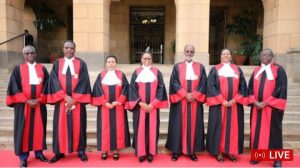
Led by Lady Chief Justice Martha Koome, the justices read their opinions as Kenyans followed the proceedings on TV, social media, and radio, listening for clues where they were leaning.
It soon became apparent that BBI supporters were destined for a rough day.
The Court had seven issues to deliberate upon and offer judgment.
They first tackled the question of whether the Basic Structure Doctrine, a legal requirement that prevents changing certain core parts of the constitution, was applicable in Kenya or not. Six out of 7 justices said the doctrine, which anchors India’s constitution, did not apply to Kenya.
“What Kenyans desired is a balance between rigidity and flexibility as reflected in the tiered amendment process in Chapter 16 of the constitution. With the core or essential features of the constitution being accorded itemed protections, but still open to amendment,” CJ Koome said.
The Lady Chief Justice continued.
“I find that the basic structure of 3 and the 4 sequential steps for amendment as prescribed by the High Court and the majority of the Court of Appeal are not applicable in Kenya and under the Constitution,” CJ Martha Koome said.
In the consolidated verdict on this matter, the Court noted the constitution is self-executing in dealing with any threat or possibility of abusive amendments as witnessed in the pre-2010 era. In addition, the Court held that the Basic Structure Doctrine does not form part of the general rules of international law, which are applicable in Kenya under Article 2(5) of the Constitution.
“What Kenyans desired is a balance between rigidity and flexibility as reflected in the tiered amendment process in Chapter 16 of the constitution. With the core or essential features of the constitution being accorded itemed protections, but still open to amendment,” CJ Koome said.
The Basic Structure Doctrine is a universal law legal doctrine that the constitution of a sovereign state has certain aspects that its legislature cannot erase. The Supreme Court of India developed it in a series of constitutional law cases in the 1960s and 1970s, culminating in Kesavananda Bharati v. State of Kerala, where the doctrine was formally adopted.
The second question was whether the President could initiate constitutional changes through a popular initiative. The Court decided that the President cannot start a constitutional amendment through the popular initiative under Article 257 of the Constitution.
However, by a majority, the Court said that the President initiated the constitutional amendment bill 2020 (the BBI), thus rendering the process unconstitutional.
Koome’s opinion on Kenyatta’s role in pushing the initiative showed the first signs BBI was in trouble.
“State institutions and state organs like the presidency cannot initiate constitutional amendment via the popular initiative routes under Article 257 of the Constitution,” Koome said.
Article 257 (1) in the Kenyan Constitution states: An amendment to this constitution may be proposed by a popular initiative signed by at least one million registered voters.
Koome and several other justices argued the President could not initiate such a process because, as Head of State, he could not be considered “Wanjiku,” a term of reference for the common mwananchi.
“The President cannot directly initiate amendments to the constitution. An amendment can only be done by the Parliament through a popular initiative. Consequently, the BBI Amendment Bill is unconstitutional,” said Deputy CJ Mwilu.
Justice Isaac Lenaola, in his judgment, declared the process unconstitutional because the President was actively involved in its creation.
“The President cannot and should not start a popular initiative… Collecting 1 million signatures, crafting an amendment bill, and then retiring to await the same bill and then ascent to it as President. That is an absurdity,” he said.
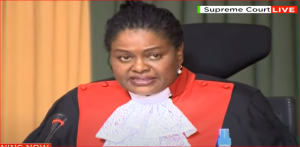
In her dissent, Justice Njoki Ndun’gu Susanna said the President wasn’t constitutionally barred from starting the BBI process.
“I perused carefully all the judgments looking for proper reasons for the decision to exclude the president from the amendment process, and I cannot find a logical constitutionally-based explanation,” she said.
“On my part, I do not consider any article in the constitution unamendable or constituting eternity clauses,” she added.
The third question before the apex court was to determine if the second Schedule of the Constitution of Kenya (Amendment) Bill, 2020 is constitutional or not. The Court found it unconstitutional and in breach of Article 10 (2) of the Constitution of Kenya 2010 because it lacked public participation.
The chief justice also said that the proposed creation of 70 new constituencies as envisioned by the BBI was unconstitutional.
“The proposed additional seventy constituencies was a late addition to the subject amendment process and was not subjected to public participation as required by the Constitution,” Koome said
The President and the presidency scored a victory on the fourth question. SCOK ruled that a sitting president could not face a civil lawsuit. The justices unanimously agreed that civil charges could not be instituted in any court against the President or the person performing the functions of the office of the President during their tenure of office.
The Court further said that Article 143(2), which provides immunity to the President, protects the President from civil proceedings during his tenure in office for acts or omissions connected with the office and functions of the office President. Nonetheless, the Court stated that any charges against the President could be instituted through the attorney general.
The sixth issue was whether the Constitution Amendment bill 2020 went through public participation. The Court ruled by a majority that there was public participation. Regardless, DCJ Mwilu DCJ, Justices Ibrahim, and Wanjala dissented.
In tackling the question of whether the IEBC had a quorum or not, the Court ruled that the IEBC had the requisite composition and quorum to undertake the signature verification process under Article 257(4).
“IEBC Act ought to be read in conformity with Article 250 (1) of the Constitution, which envisages that it is properly constituted with a minimum of three Commissioners,” CJ Koome said.
The question raised regarding the interpretation of Article 257(10) of the constitution on whether or not it requires that all specific proposed amendments to the constitution be submitted as separate and distinct referendum questions were ruled to be not ripe for determination.
While still concurring, Judge Njoki Ndung’u opined that the Constitution amendment bill should be presented in one question in a referendum.
“The exception to the doctrine of ripeness applied, and therefore IEBC may only present one question at Referendum: Yes or No to the draft Bill,” judge Ndung’u said
The complete verdict is to be issued next week on Tuesday.
REACTION FROM LEADERS
Mr. Okore Jayalo is an advocate of the High Court of Kenya and a constitutional expert. He delves into the matter of the ruling, especially the basic structure doctrine of the constitution, which was one of the seven issues that the SCoK deliberated on.
“The basic structure of the constitution was found not to be applicable in Kenya. The basic structure of the constitution is basically the backbone of the constitution, those clauses which are termed eternity clauses and which can’t be changed by any amendments. Since the Supreme Court of Kenya ruled by a majority of six that the basic structure is not applicable in Kenya, it simply means that the constitution can be amended,” Jayalo said.
“The Court disallowed, by the majority, issue number two, which was a question of if the President can initiate a constitutional amendment process by a popular initiative. That simply means that the BBI has died naturally because it was initiated by the President,” He said.
Nelson Havi, the former President of the Law Society of Kenya, who fought against the BBI amendment bill in all the courts, penned a celebration on Twitter.
“Well, it took a determined cat to stop the noisy, noxious nuisance that was the BBI Bill reggae. It matters not that the Supreme Court has held that the Basic Structure Doctrine is inapplicable in Kenya. In the end, all that matters is the pronouncement, “It is null and void,”‘ Havi said.
Surprisingly, Raila Odinga celebrated the verdict of the Supreme Court of Kenya. About two hours after its delivery, the Orange Democratic Movement party leader and Azimio la Umoja presidential candidate released a statement to the Kenyan newsrooms.
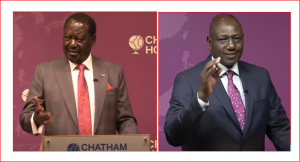
“I wish to applaud the verdict of the Supreme Court today as a much-desired reiteration of the sovereignty of the people of Kenya, particularly in the backdrop of questions surrounding amendments to the Constitution,” Odinga said.
“The verdict is empathetic that every State organ must always subject itself to the people of Kenya and must never usurp their sovereignty by substituting their will with that of State officers and State organs.”
The High Representative to the African Union added that the bill’s supporters will now retreat to deliberate on the way forward and develop a new direction.
“I note that the BBI process has been upheld. I also note that the contents of the bill itself was upheld save for the provisions of the 2nd Schedule. What has been faulted is the role that the State is said to have played at the commencement of the popular initiative,” Odinga said in a press release.
“We shall deliberate on the way forward and decide on a future course of action that protects the interests of all those who voted to see the amendments come to light.”
Deputy President William Ruto did not mince his words. In a fiery statement, he blasted BBI proponents and demanded they apologize to the Kenyans for wasting 4 years of their time and money.
“The end of reggae is the end of political conmanship in Kenya. The ruling is a validation that BBI was an illegal and an unconstitutional exercise,” DP Ruto said while at a campaign rally in Wajir.
The Kenya Kwanza presidential candidate said the country had lost four precious years in a useless exercise that delayed the Big Four Agenda.
“The end of reggae is the end of political conmanship in Kenya. The ruling is a validation that BBI was an illegal and an unconstitutional exercise,” Deputy President William Ruto said.
“The Handshake brothers and the promoters of the BBI must now apologize to Kenyans.”
Musalia Mudavadi, the Amani National Congress party leader and close ally of William Ruto, congratulated the SCOK for stopping BBI.
“I congratulate the Supreme Court judges for their bold decision, which essentially puts a stop to the BBI reggae,” Mudavadi said.
“Kenya is indeed fortunate to have a strong and independent Judiciary to which the people can always turn to when those in power become outrageously impertinent,” Mudavadi said on Twitter.
Junet Mohamed issued a statement, saying that the SCOK ruling on BBI demonstrates the maturity of democracy in Kenya.
“Kenyans, especially future generations, must be glad to know that our constitution can be amended. More importantly, there now exists judicial clarity on how to amend the constitution.
The judgment affirms our belief in the rule of law and constitutionalism. It also demonstrates the maturity of our democracy and its core institutions,” the statement read in part.
Junet Mohamed and Dennis Waweru were the joint secretaries of the BBI Secretariat.
BBI BACKGROUND
According to Kenyatta and Odinga, BBI was a way to bring Kenyans together to avoid inter-tribal animosity often experienced after every election season.
The constitutional reforms proposal had 9 pillars, including promoting patriotism, respect toward each other in politics and among different tribes, advocating for Kenyans’ human rights, and advancing the principles of shared prosperity to fight poverty.
Other pillars enhanced Kenya’s political outlook by making elections less antagonistic by decentralizing the government and empowering counties to map their destiny through devolution.
Also, key in the BBI proposal is dealing with corruption, which is considered one of Kenya’s biggest obstacles toward prosperity.
“The fight against corruption has to be carried out from a wide and common front to eliminate any sanctuary for perpetrators. Our fighting and reporting corruption should itself not be corrupt. It must not be a witch hunt but instead should reflect integrity,” the BBI statement reads.
Opponents have criticized BBI as an unnecessary, wasteful process geared toward benefitting Kenyatta and Odinga to entrench them in power.
Click here to read about BBI
KENYANS ‘ REACTION TO THE RULING
Kenyans have expressed mixed feelings toward the ruling. Odinga’s supporters have reacted with disappointment, but Ruto’s supporters have cheered the outcome.
Kenyans have generally expressed respect for the Supreme Court, displaying faith in the judiciary, a rare response toward a governmental entity.
Kenya’s judiciary stands out as one of the world’s most independent, having made significant rulings against those in power.
In 2017, Former Chief Justice David Maraga stunned the world when he nullified the election, citing irregularities, and forcing a new presidential election.
Since then, the Kenyan high courts have followed with rulings that have put the executive in check, with the Thursday ruling being the latest.
Kenyans have displayed an in-depth understanding of the dispute, showing an extraordinary level of civic engagement rarely seen in many parts of the world.
A Mombasa resident Albert Ouma has gone viral because of his critical analysis of the ruling and his perception that BBI was bad for Kenya.
“The promoters of the bill did not have the best interest of Kenya at heart,” Ouma told the NTV field reporter. “We thank the judges for upholding the integrity of the citizens of this nation. And we wish the issue of BBI shall not rise again in this nation.
Ouma said the government has failed to deliver services to Kenyans, and the President should focus on improving the plight of suffering Kenyans by analyzing the basic things Kenyans need.
BBI supporters in parliament have promised to revive it after the elections, following the guidelines given them by the Supreme Court.
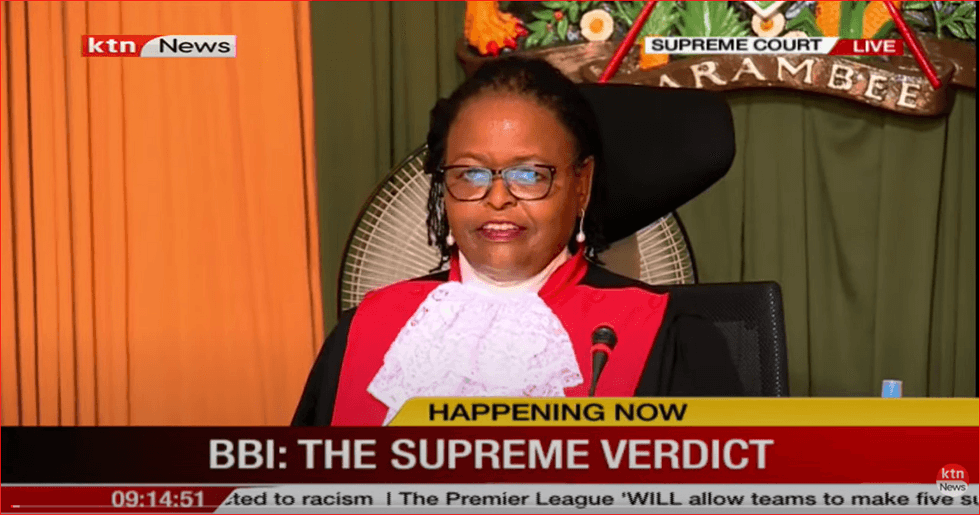










































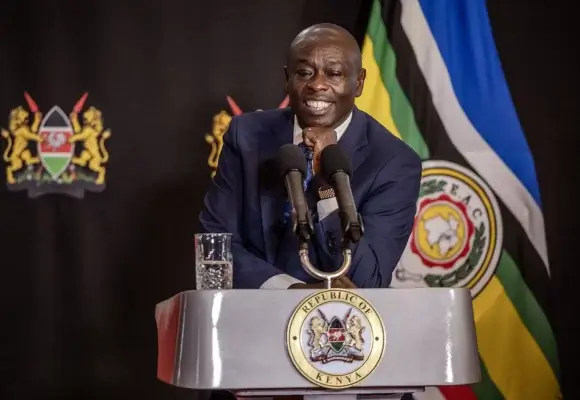
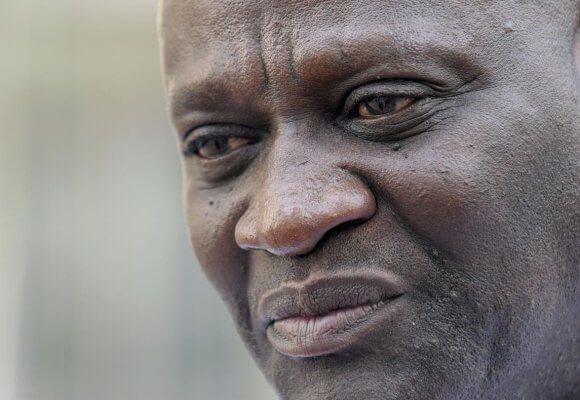
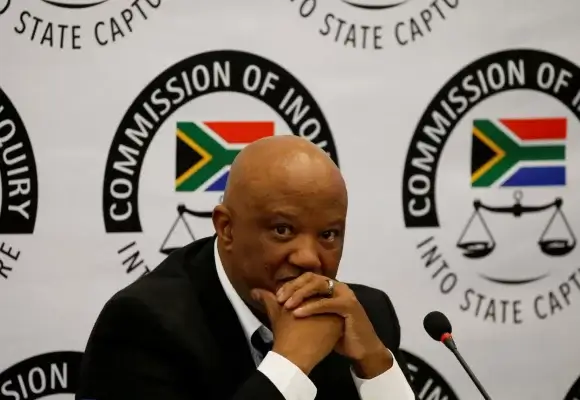



LEAVE A COMMENT
You must be logged in to post a comment.